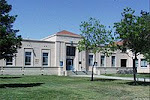


This is a long paragraph from BURLEIGH AND HIS TIMES(April 1832) that is collected in
Critical & Historical Essays by Thomas Babington Macaulay.
The only event of modern times which can be properly compared
with the Reformation is the French Revolution, or, to speak more
accurately, that great revolution of political feeling which took
place in almost every part of the civilised world during the
eighteenth century, and which obtained in France its most
terrible and signal triumph. Each of these memorable events may
be described as a rising up of the human reason against a Caste.
The one was a struggle of the laity against the clergy for
intellectual liberty; the other was a struggle of the people
against princes and nobles for political liberty. In both cases,
the spirit of innovation was at first encouraged by the class to
which it was likely to be most prejudicial. It was under the
patronage of Frederic, of Catherine, of Joseph, and of the
grandees of France, that the philosophy which afterwards
threatened all the thrones and aristocracies of Europe with
destruction first became formidable. The ardour with which men
betook themselves to liberal studies, at the close of the
fifteenth and the beginning of the sixteenth century, was
zealously encouraged by the heads of that very church to which
liberal studies were destined to be fatal. In both cases, when
the explosion came, it came with a violence which appalled and
disgusted many of those who had previously been distinguished by
the freedom of their opinions. The violence of the democratic
party in France made Burke a Tory and Alfieri a courtier. The
violence of the chiefs of the German schism made Erasmus a
defender of abuses, and turned the author of Utopia into a
persecutor. In both cases, the convulsion which had overthrown
deeply seated errors, shook all the principles on which society
rests to their very foundations. The minds of men were unsettled.
It seemed for a time that all order and morality were about to
perish with the prejudices with which they had been long and
intimately associated. Frightful cruelties were committed.
Immense masses of property were confiscated. Every part of Europe
swarmed with exiles. In moody and turbulent spirits zeal soured
into malignity, or foamed into madness. From the political
agitation of the eighteenth century sprang the Jacobins. From the
religious agitation of the sixteenth century sprang the
Anabaptists. The partisans of Robespierre robbed and murdered in
the name of fraternity and equality. The followers of
Kniperdoling robbed and murdered in the name of Christian
liberty. The feeling of patriotism was in many parts of Europe,
almost wholly extinguished. All the old maxims of foreign policy
were changed. Physical boundaries were superseded by moral
boundaries. Nations made war on each other with new arms, with
arms which no fortifications, however strong by nature or, by
art, could resist, with arms before which rivers parted like the
Jordan, and ramparts fell down like the walls of Jericho. The
great masters of fleets and armies were often reduced to confess,
like Milton's warlike angel, how hard they found it
"--To exclude
Spiritual substance with corporeal bar."
Europe was divided, as Greece had been divided during the period
concerning which Thucydides wrote. The conflict was not, as it is
in ordinary times, between state and state, but between two
omnipresent factions, each of which was in some places dominant
and in other places oppressed, but which, openly or covertly,
carried on their strife in the bosom of every society. No man
asked whether another belonged to the same country with himself,
but whether he belonged to the same sect. Party-spirit seemed to
justify and consecrate acts which, in any other times, would have
been considered as the foulest of treasons. The French emigrant
saw nothing disgraceful in bringing Austrian and Prussian hussars
to Paris. The Irish or Italian democrat saw no impropriety in
serving the French Directory against his own native government.
So, in the sixteenth century, the fury of theological factions
suspended all national animosities and jealousies. The Spaniards
were invited into France by the League; the English were invited
into France by the Huguenots.





















No comments:
Post a Comment